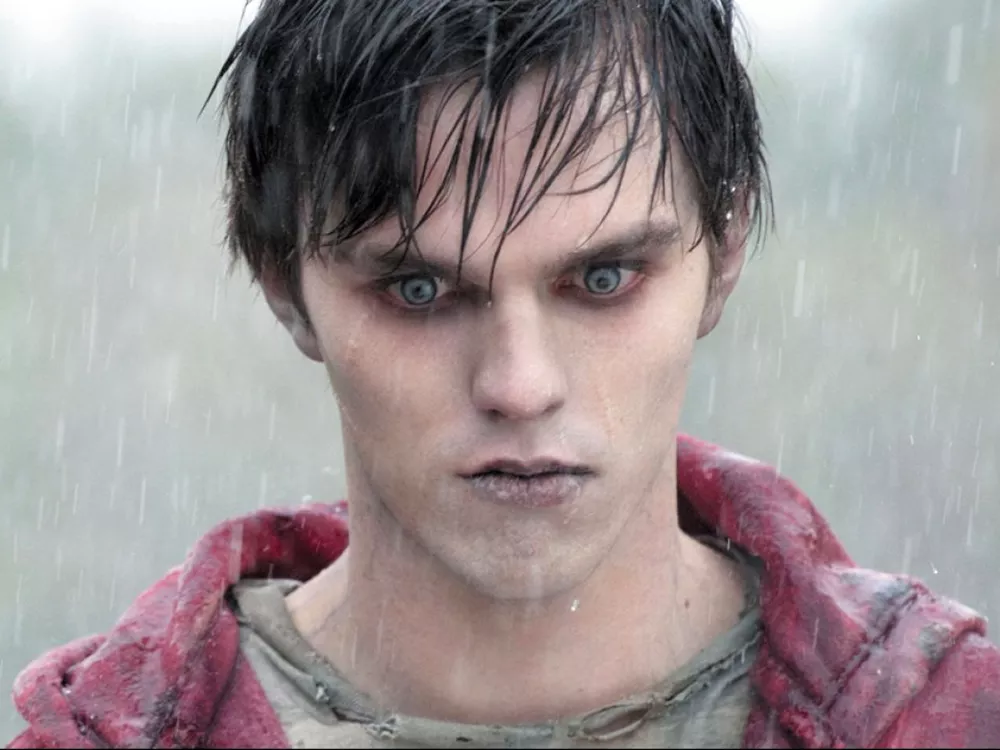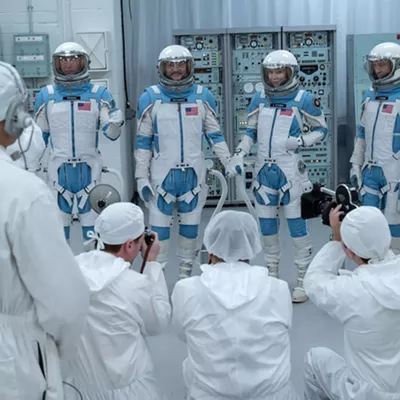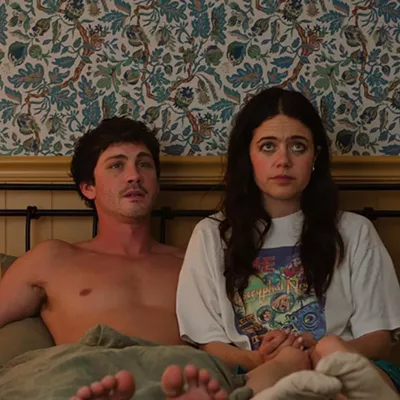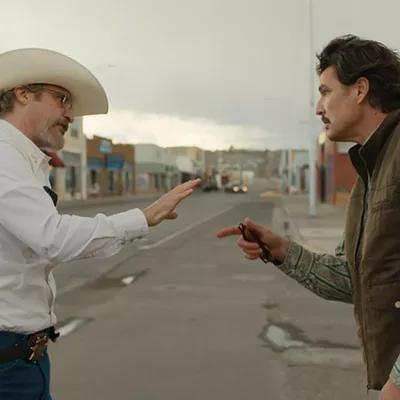I’m not sure that they had to put a balcony scene in this tale of a boy named R and a girl named Julie to suggest that it’s a riff on a story of star-crossed lovers by William Shakespeare. Besides, the dilemma in Shakespeare’s play is that they came from two feuding families. The problem with the kids here is that one is living and one is dead. Well, OK, he’s a zombie.
We’re not told exactly what happened by the film’s narrator, R (Nicholas Hoult). Just that there was a plague eight years ago, resulting in an ever-growing population of wandering zombies, leading to survivors building a huge wall around part of Montreal. Most of them have come to grips with the idea that the world is on the way out.
But wait a minute. Maybe the zombies are just ailing. Maybe (apologies to Bryan Ferry) love is the drug for them.
That’s where this rather silly story heads. Hungry zombies are lumbering around in burnt-out streets. Beautiful Julie (Teresa Palmer) is in the wrong place at the wrong time, when R saves her, takes her away to his airport lair and convinces her (note: He can’t speak in any kind of communicative way) to hang out with him for a few days.
Two questions bubble up: Why does he do this? Why does she even go with him, never mind stay?
He does it because, ummm, maybe he has a conscience, or maybe he’s tired of hanging out with his grunting zombie pal M (or should I say Mercutio?), or maybe he just thinks she’s hot. She probably stays because she’s tired of living under the strict rules of her dad (John Malkovich), and because R has a very cool vinyl record collection, including Dylan, Springsteen and the Byrds.
But motivations are never really made clear. And there’s not much more to the film, beyond garish flashbacks to pre-plague days; horrific Ray Harryhausen-like creatures called Boneys, which are what bad zombies eventually become; and the neat idea that when zombies eat someone’s brain, they immediately know everything about that person.
The two leads go through character arcs that are exact opposites but arrive at the same place. That, too, is a good idea, but it’s not very convincing. Though the script attempts to build up dramatic urgency, it’s done in a slapdash way and everything comes across as being ridiculous. In the end, not a lot of sense is to be made out of the story. Kind of like love.














